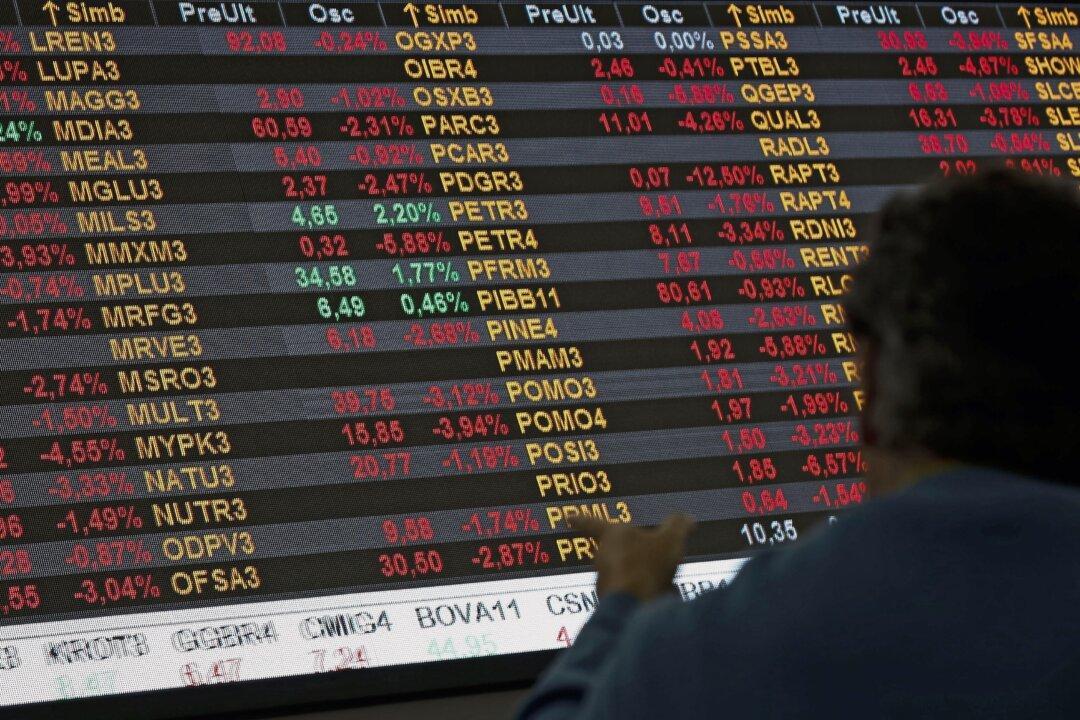RIO DE JANEIRO—Brazil’s battered economy took another blow on Wednesday when Moody’s became the last of the three major credit ratings agencies to strip the country of its investment grade status.
The agency lowered Brazil’s ratings by two notches, from Baa3 to Baa2 with a negative outlook. Fitch Ratings lowered Brazil into junk territory in December, mirroring a similar move by Standard & Poor’s in September.
In a note accompanying its decision, Moody’s said the downgrade was driven by worries over an increase in government debt “in a low-growth environment” and the country’s “challenging political dynamics.”
[aolvideo src=“http://pshared.5min.com/Scripts/PlayerSeed.js?sid=1759&width=580&height=356&playList=519461026&responsive=false&pgType=console&pgTypeId=discovery-videoDetails-grabCodeBtn”]
The agency said it expects the government’s debt to exceed 80 percent of gross domestic product within the next three years and for the economy to contract by an average of 0.5 percent a year through 2018.
Brazil’s finance ministry responded to the decision in a news release, stating that it would not alter its “commitment to necessary fiscal adjustment.” The ministry added that current measures under discussion, including pension reform and a financial transactions tax, would soon result in the resumption of growth.
[pullquote author=“Andre Perfeito, chief economist” org=“Gradual Investimentos”]The really bad news is that this isn’t really news at all. The markets barely reacted. Everybody knew it was going to happen.[/pullquote]
“The really bad news is that this isn’t really news at all,” said Andre Perfeito, the chief economist of Gradual Investimentos. “The markets barely reacted. Everybody knew it was going to happen.”
[morearticles]1974793, 1934698[/morearticles]
Last week, Brazil’s central bank published statistics showing that the economy shrank over 4 percent in 2015. On Thursday the Organization for Economic Cooperation and Development forecast the country’s GDP would contract by a further 4 percent in 2016.
The gloom over the country’s economic prospects is compounded by the poisonous atmosphere in congress, where the government is struggling to win support for its austerity measures.
[pullquote author=“Andre Perfeito, chief economist” org=“Gradual Investimentos”]The problem in Brazil is not an economic one, but a political one.[/pullquote]
“The problem in Brazil is not an economic one, but a political one,” Perfeito said. “We need medium- to long-term fiscal adjustment, but as everyone is nervous in Brasilia they are trying to do it all in the short term.”
A long-running corruption scandal at the state-run oil company, Petrobras, has implicated dozens of senior politicians and many of the country’s top business executives. President Dilma Rousseff also faces impeachment proceedings over claims she used public banks to plug budget gaps, as well as accusations that she used illicit funds to finance her 2014 re-election campaign.
“The situation is bad and getting worse,” said Jason Vieira from Infinity Capital. “This downgrade will increase consumers’ fears, which combined with tightened access to credit, will have an impact on economic activity.”
[morearticles]1968174, 1948331[/morearticles]





